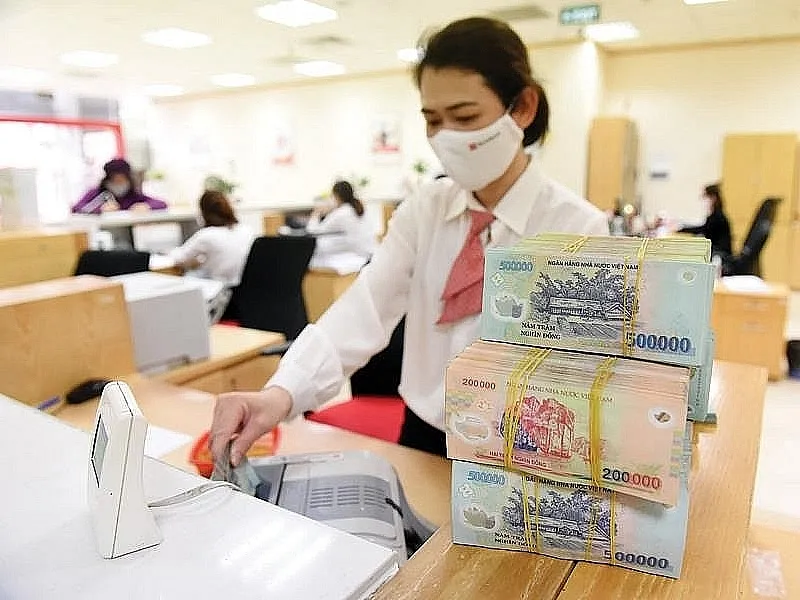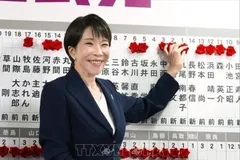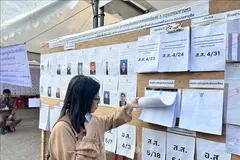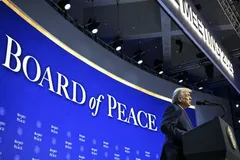
However, despite many expectations, not much has been done so far by way of its implementation for 2023.
Banks hesitate
The State Bank of Vietnam has announced the interest rate limit of 2% per year for two years from 2022 through 2023 to all commercial banks for early implementation of the policy to distribute loans to businesses, cooperatives, and business households. The State Bank of Vietnam has proposed to the Ministry of Planning and Investment, and the Ministry of Finance, to report to competent authorities to assign the annual public investment plan in 2022 of nearly VND 16,035 bln, and at the same time arrange a public investment plan in 2023 of more than VND 23,965 bln.
Initially it was quite a smooth process when the estimates were made earlier with the support interest of nearly VND 16,035 bln, corresponding to banks that would spend about VND 800,000 bln of outstanding loans in 2022. In 2023, the loan balance is expected to be about VND 1,200,000 bln pumped out by banks. However, the latest data from the State Bank of Vietnam shows that by the end of November 2022, the outstanding loans of banks disbursed were only VND 23,000 bln. Corresponding to the amount of interest support of nearly VND 78 bln, the rate of VND 78 bln and VND 16,035 bln Vietnam dong is too low and not as expected.
Ms. Hà Thu Giang, Deputy Director in charge of the Credit Department for Economic Sectors at the State Bank of Vietnam, said that there are two main reasons for this. Firstly, the regulation requires customers to meet the criteria of being able to repay and be able to recover. But banks cannot evaluate the debt repayment ability of enterprises, and the capability of enterprises to recover when the domestic and world economies are still so volatile. If at the time of audit, the enterprise is assessed as not being able to recover, it may be accused of taking advantage of the policy.
Secondly, when participating in the interest rate reduction support program, enterprises must comply with the procedures related to post-inspection and audit. Therefore, businesses also consider the benefit of 2% support compared to the cost of keeping track of records, documents, and related regulations to serve post-inspection in the future. If they participate in the program but later withdraw, it will be very difficult for enterprises to handle accounting and paying dividends of this amount.
Support package in 2023
In a recent seminar, Mr. Nguyễn Quốc Kỳ, Chairman of the Board of Directors of Vietravel, expressed that policies for businesses before and after the Covid-19 pandemic are different and hopes that the Government will point out the difference. Because if lending standards are the same before and after the Covid-19 pandemic, then the impact of the pandemic was insignificant, and the stagnation faced by businesses was also only temporary. Mr. Kỳ suggested that the Government and the State Bank of Vietnam revise lending criteria and conditions to support businesses in the future in the post-pandemic phase.
The criterion of the 2% interest rate support package is to support businesses to recover after the Covid-19 pandemic. Since being implemented, commercial banks have announced that the implementation of this support package is one of their important tasks. Also, from the beginning of the implementation until the end of 2022, many conferences, seminars, and talks have been held, with the aim of discussing and finding solutions to overcome difficulties and obstacles for the interest rate support program.
However, having entered 2023, which is the last year of implementation of the support package, obstacles are still there, while businesses are looking forward to a change soon in order to access incentives and partly reduce the burden of borrowing.
The good news is that the Government recently asked to amend and resolve problems in the implementation of the 2% interest rate support package. The assessment of these difficulties and obstacles is chaired by the State Bank of Vietnam and is being sent to the Government for resolution. As such, the relevant ministries and sectors have also taken positive action in response to complaints from enterprises. This information has created a new expectation that the banks will openly welcome support to businesses.
However, observing from another angle, a finance expert shared that the subjects who want to access this interest rate support package are mostly customers with risks or difficulties. Usually, this group of customers who want to borrow money must apply high-interest rates, especially as banks are mobilizing capital with high-interest rates. But if high-interest rates are applied according to the market, banks may be inspected, so banks also consider this factor and hesitate.
Along with recovery of the economy in 2022, many industries have been different from the time when the program for economic recovery and development was created after the Covid-19 pandemic. Many businesses find that they need access to capital rather than support interest rates. This means that the banks still have many customers who want to borrow and are not interested in the 2% interest rate support.

















